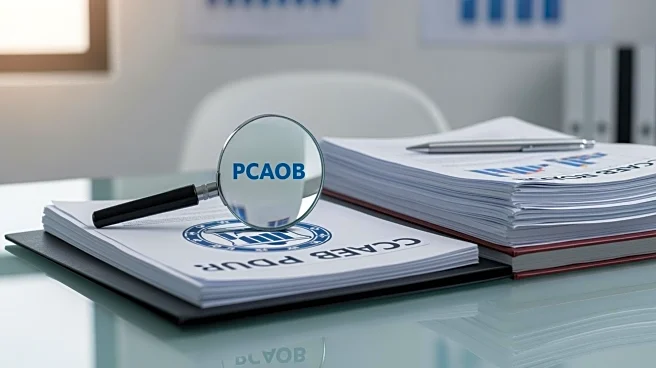What's Happening?
A report by the Public Company Accounting Oversight Board (PCAOB) has identified a correlation between auditor changes and financial restatements. The study found that 29% of companies with significant
restatements, known as 'Big R' restatements, reported an auditor change in the year preceding the restatement. This rate is notably higher than the 11% auditor-change rate observed across the broader population of companies. The data, collected from 2005 to 2024, also indicates a recent increase in major restatements after years of decline.
Why It's Important?
The findings from the PCAOB report are significant for stakeholders in the financial and auditing sectors. Auditor changes preceding restatements may suggest issues with financial reporting or internal controls, impacting investor confidence and market stability. Companies undergoing restatements often face scrutiny from regulators and investors, potentially affecting their stock prices and reputation. Understanding these patterns can help firms improve their auditing practices and financial transparency, ultimately benefiting the broader economy.
What's Next?
The PCAOB's findings may prompt companies to reassess their auditing processes and strengthen internal controls to prevent restatements. Regulators might increase oversight on firms with frequent auditor changes, ensuring compliance with financial reporting standards. Investors and analysts will likely monitor companies with recent auditor changes more closely, evaluating potential risks associated with financial restatements.
Beyond the Headlines
The correlation between auditor changes and restatements raises questions about the effectiveness of current auditing standards and practices. It highlights the need for continuous improvement in financial reporting and transparency. The increase in major restatements could lead to discussions on regulatory reforms and the role of auditors in safeguarding financial integrity.










